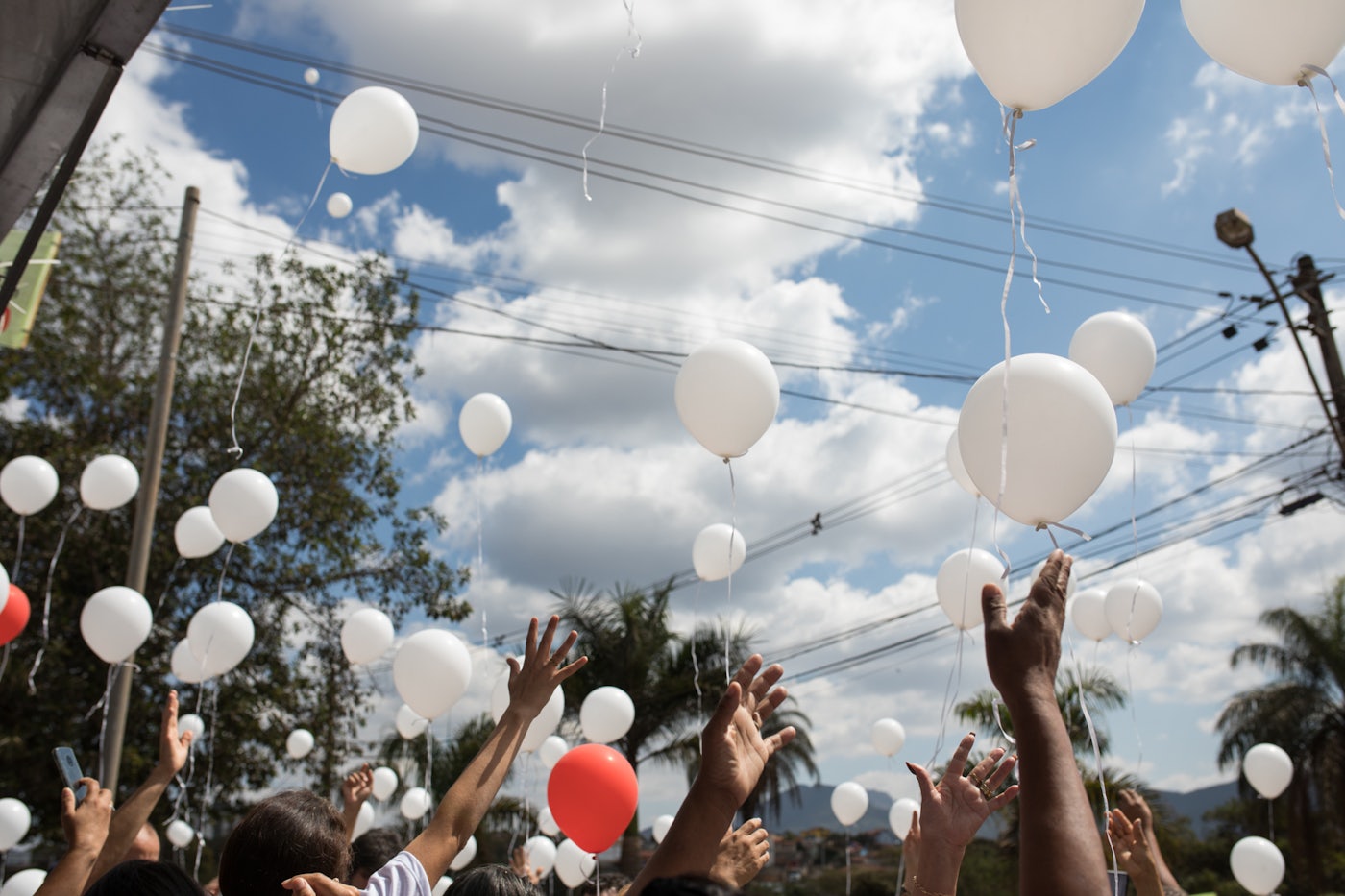At midday on January 25, 2019, the town of Brumadinho in the southern Brazilian state of Minas Gerais was hit by a mudslide after a dam break, killing over 200 people. Homes were destroyed and trees were uprooted as 11.7 million cubic meters of mud—enough to fill 5,000 Olympic-sized swimming pools—descended on the town and its surrounding neighborhoods.
The dam belonged to multinational mining giant Vale S.A., the largest iron ore producer in the world. It had used the dam to store mining waste, toxic to humans and animals. Later, investigations would show that the heads of Vale and executives from Tüv Süd—the German company hired to monitor the dam—had known of its instability.
Three weeks before the mudslide, far-right politician Jair Bolsonaro was sworn in as Brazil’s president, after campaigning on tax cuts for big businesses; loosened mining restrictions; less government spending on environmental protection; and dismissals of human-caused climate change. Bolsonaro was applauded for traveling to Brumadinho immediately after the mudslide in January, but he hasn’t returned since. Seven months later, 21 people remain missing, while the people of Brumadinho who survived remain angry, sad, and stunned.
Here are some of their stories.
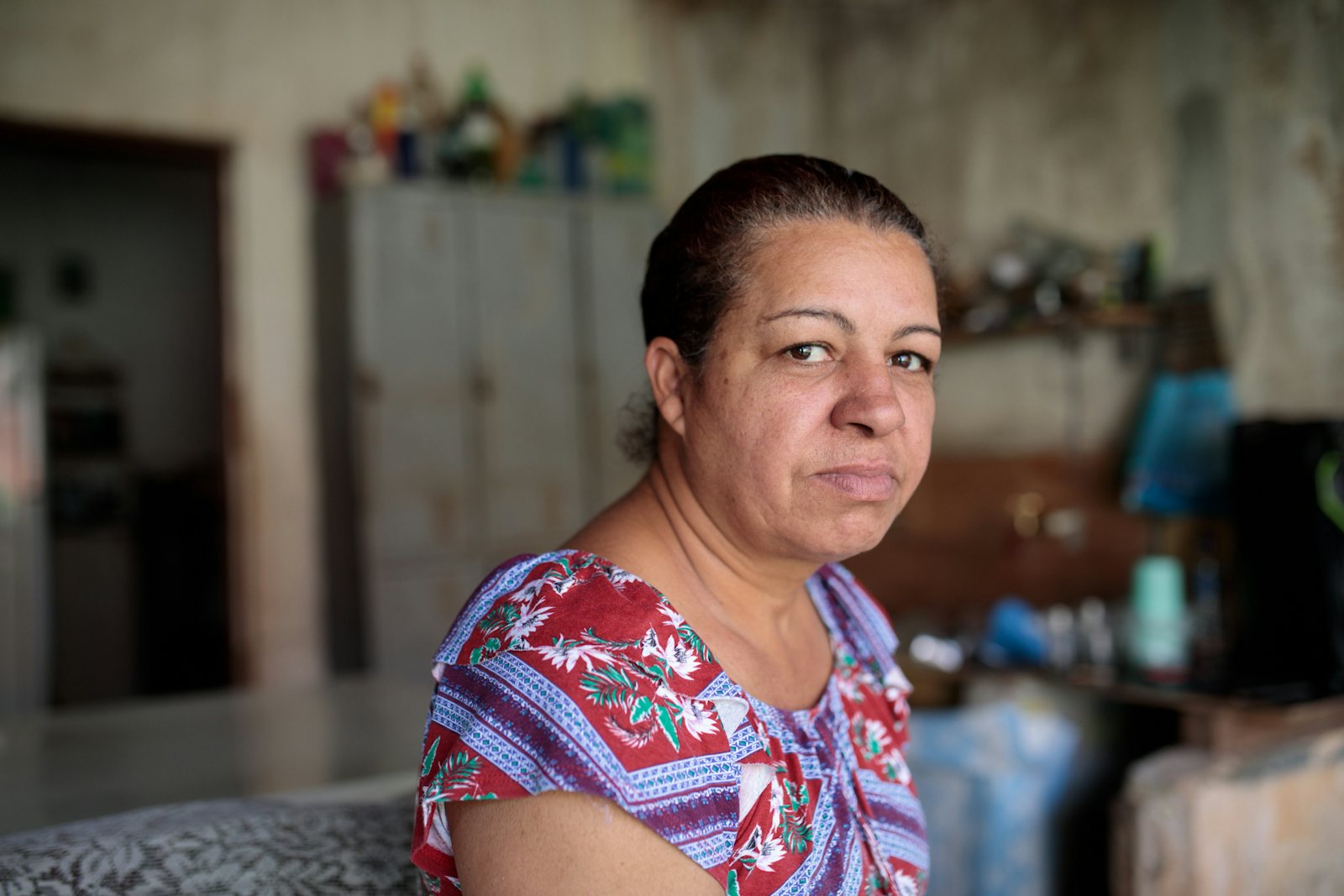
Eva Lúcia Barbosa, 49
It’s over. The whole town is finished.
That was the first thing I thought when I saw the river of mud running down the hill. It was filled with everything: cars, trees, animals. And they were all just rushing by.
This had happened before in a different town in Minas Gerais about five years ago, but I never imagined it could happen here. A few months before the mudslide, the people from Vale had told us the dam posed no risk. That was in September, and by January it was broken. I remember hearing the sound of helicopters coming from the mines about twenty minutes after the break, and my heart fell to my chest because my sons were working in the mines.
It was my youngest, Caio César, who I was most worried about. The mudslide happened at noon, and normally he would be having lunch at a restaurant right where the mudslide went through. Somehow, on that day, by the grace of God, he decided to go for lunch an hour later than usual. It was a miracle, is all I can say.
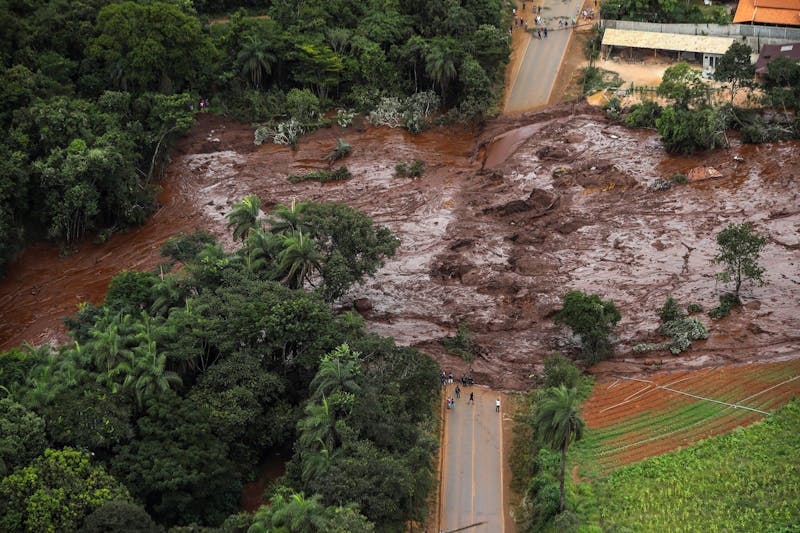
I thank God for protecting my children, but I lost seven family members in the mudslide. It took 12 days to find the body of my nephew, Rodrigo, and it’s been very difficult for his wife and children. At the time of the disaster, I was president of the community association here in Córrego de Feijão, so I had to support my neighbors and go with them to identity bodies, plan funerals, and take people to therapy. I still go today.
The stress of seeing helicopters flying right above my house while carrying black body bags to the morgue does something to your mind. After a few weeks, I stepped down from the community association because everything in my life had become too much. My mother had been sick before the mudslide, but she got so much worse after, and I think deep sadness made her death come faster. We buried her two months ago. She was only 70.
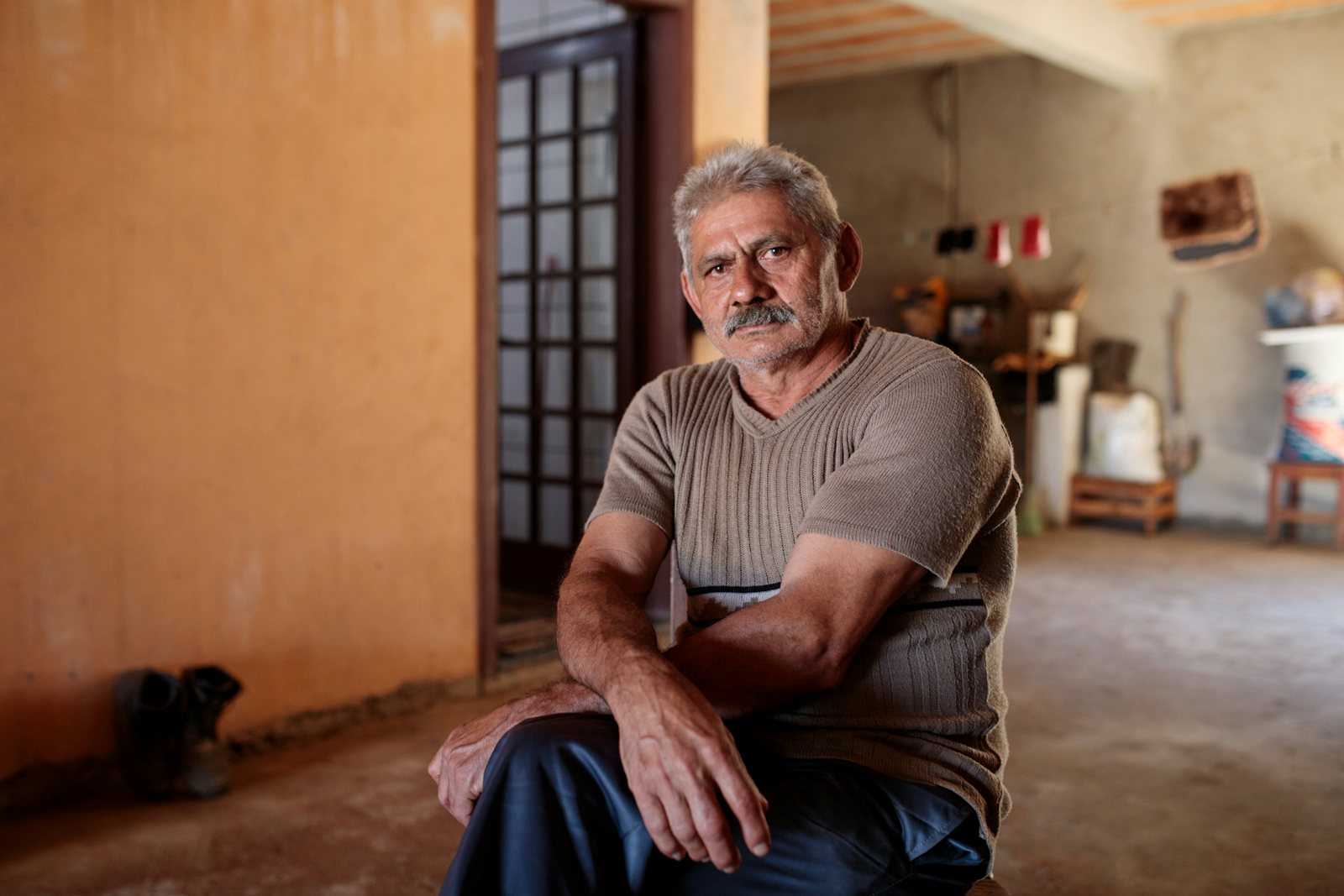
Francisco Braga da Silva, 61
I saw the whole thing as it happened.
I was right where it started, working on a farm next to the dam, and I’ve never seen anything like it in my entire life. I didn’t hear a noise, I just saw a river of mud falling. The noises came after, when people were screaming and calling for help.
Normally, I would have been working at my other job, which is cleaning train cabins near the mine. But on this day, my shift was at night, so I wasn’t there. I had an old friend of mine who was working the morning shift, and unfortunately he wasn’t able to run for cover. Another friend of mine lost his brother in the Mariana disaster in 2015, and he moved here less than two months ago. He died in this mudslide. It’s absurd.
The owner of the farm I was working on had not been there, because he is based in Belo Horizonte. And after the disaster, Vale was going to pay me 50,000 reais ($12,000) as compensation because I could have died. But the farm owner went and claimed the money for himself. I left that job two months ago.
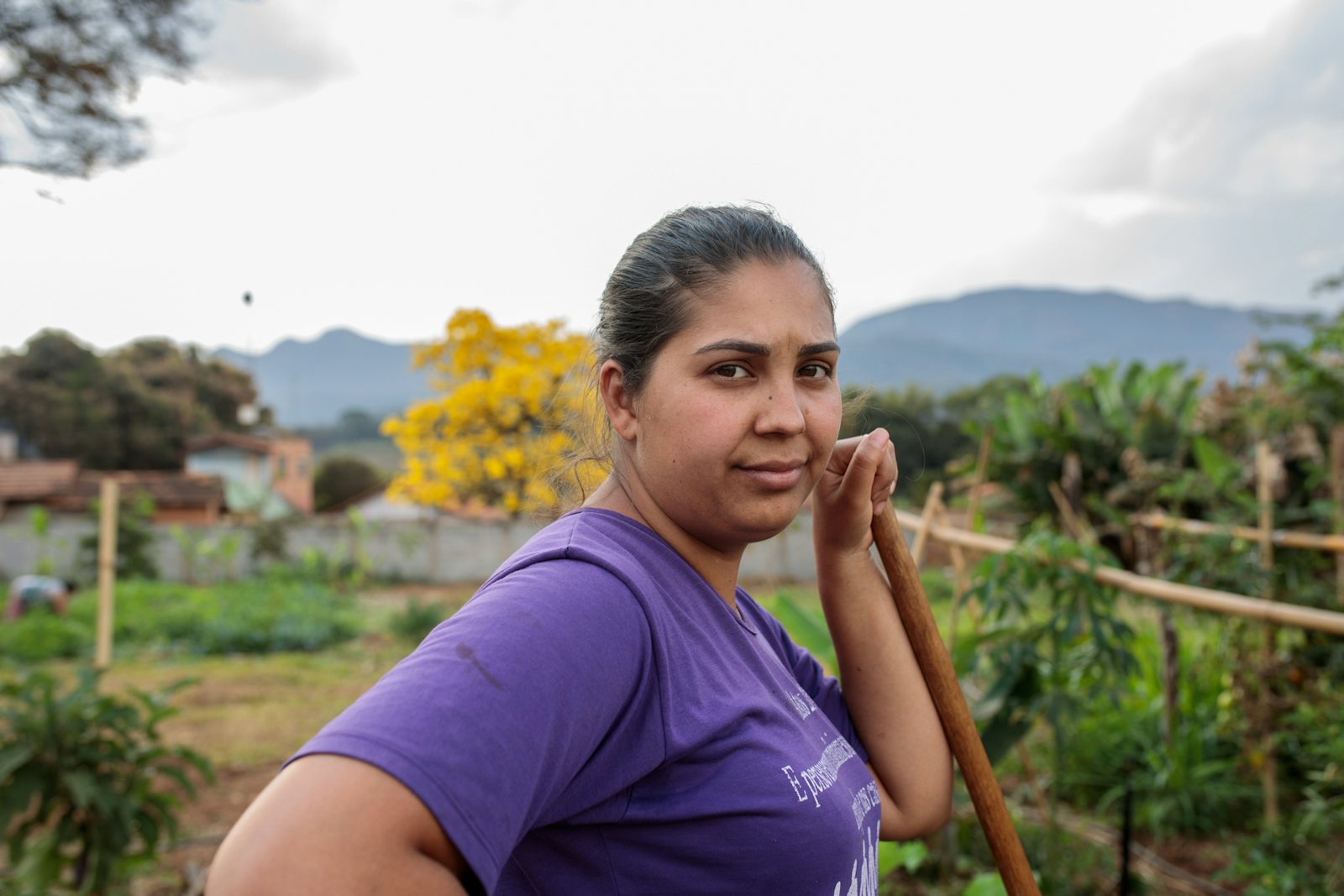
Alíne Aparecida Lopes Muniz, 26
January 25 was the worst day of my entire life. That’s all I can call it.
I was up in Belo Horizonte when the mudslide occurred. At the beginning, everyone was saying there was an accident at the mines, but no one knew how serious it was. Only after watching the news did I begin to realize that this was not a regular accident, and that my father was in trouble.
My father worked at Vale from the time we moved here when I was eight. Working in the mines was the only job he could get. After the disaster, I couldn’t get home for 24 hours because all the roads were closed, and I couldn’t call anyone because the lines were down. For a few days we kept getting news that my father was alive and he had made it out. People kept saying they had seen him here, there and all over, so we waited and waited and waited.
He never came home. The mudslide happened January 25, and we found pieces of his body in May. He was one of the last people to be found.
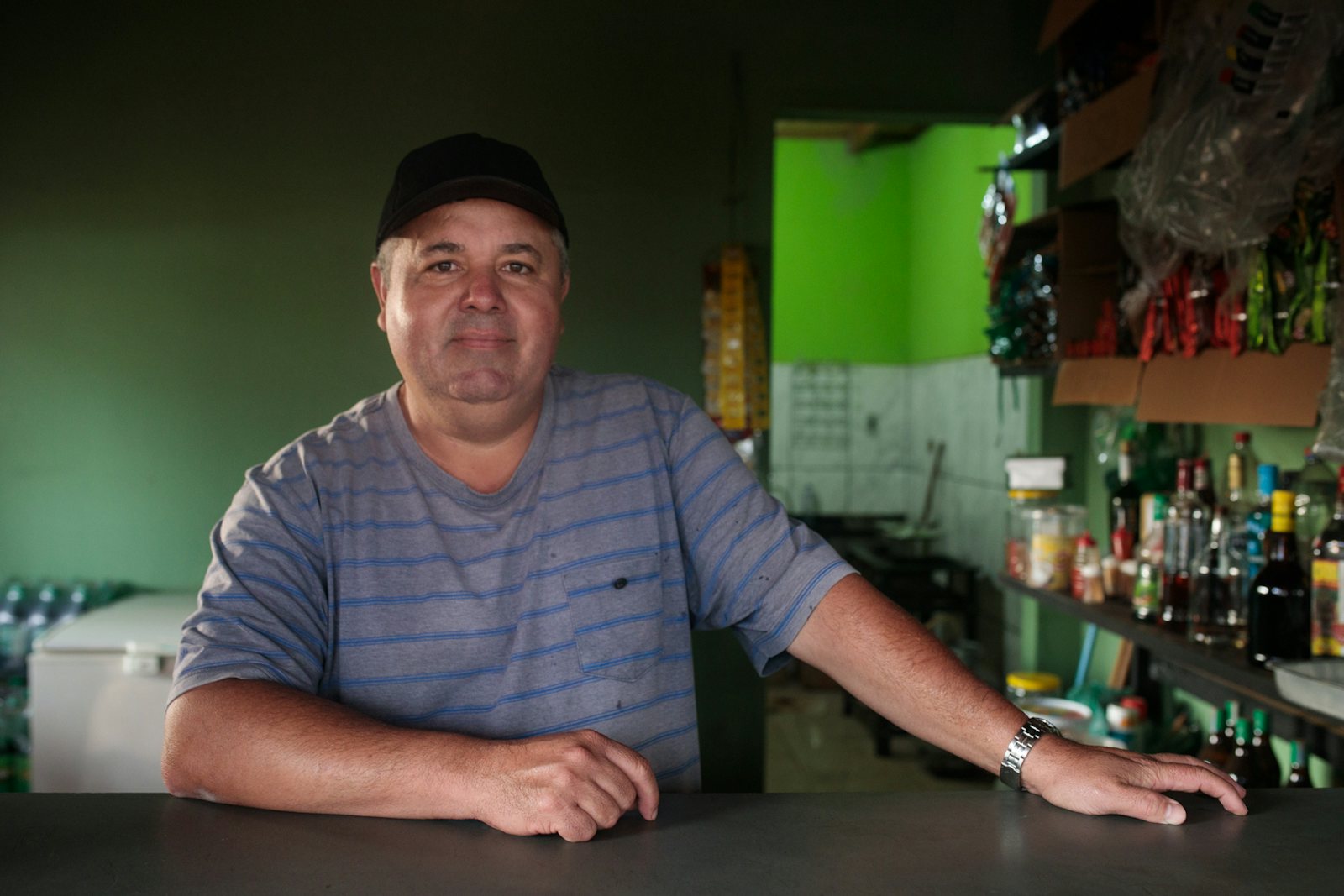
Marcos José
My bar was empty after the mudslide. No one came in and the mood was so low. There was so much grief, and it was just dark.
I had been fishing with my son in a small river upstream from the dam when the mudslide happened, and so I didn’t know there had been an accident until I returned. It was just chaos. My wife is a cleaning lady, and she was working in a client’s house when the mudslide happened. She was able to run to safety, but her client didn’t want to leave her pets behind, so she didn’t make it. She was the lawyer here in Córrego, and a lot of people miss her.
For me, I am happy that my wife is alive, but the town has completely changed. People who didn’t drink before the mudslide started coming to the bar and staying here until late at night. As you can see, I’m just now opening my bar for the day, but people have been waiting here for hours drinking their own beer. After the mudslide, I closed the bar for a month because no one was in the mood to drink. Now people are here all the time. Business is good, but the town is just sad.
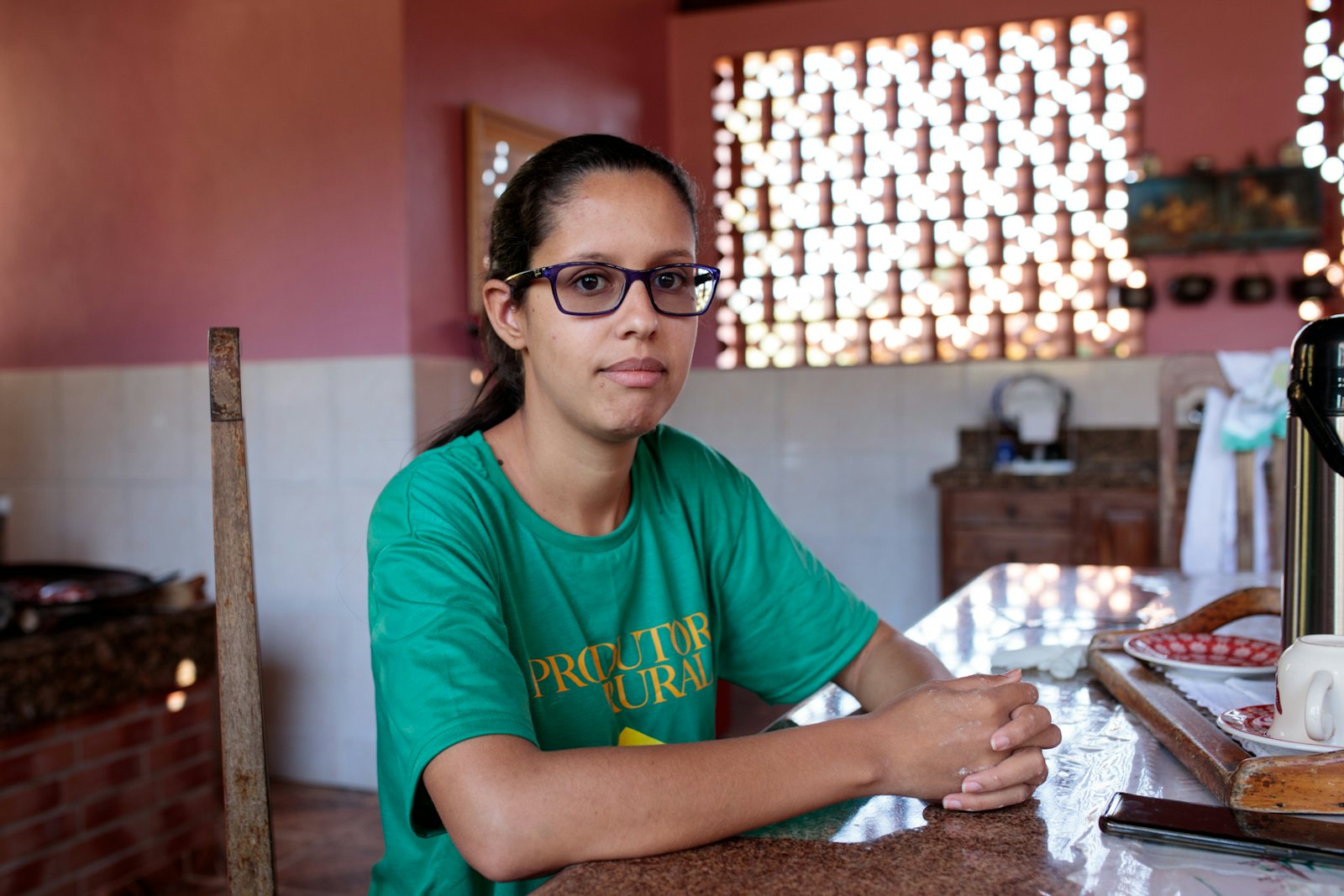
Adriana Leal, 29
Today, we are living off a minimum wage. We have all this land, but it’s useless because it was all contaminated by the mudslide.
The environmental analysts said it would take twenty years for our soil to be healthy again. We are farmers, how can we wait twenty years? My father had 24 hectares of land here in Tejuco, and he has been farming for 43 years. He now has to start all over because our soil can no longer produce.
We have 11 workers who used to pay to use parts of our land, and now they can only survive on the money Vale gives them every month as compensation. My family hasn’t been compensated yet, and I don’t know how they are going to decide what to give us—whether it’s a system based off land loss, or previous income, or some other thing. Everything is complicated, and unfortunately it’s all up to Vale.
I don’t want to remember what happened. But to this day, I can still see the mudslide coming towards me, because I had been out on the land. My body froze, and I don’t know how I made it to the truck, but by the grace of God I was able to drive to higher ground with four of our workers. My father luckily had left earlier to go have lunch at home. We have two farms, or we had two farms, and now we have none.
